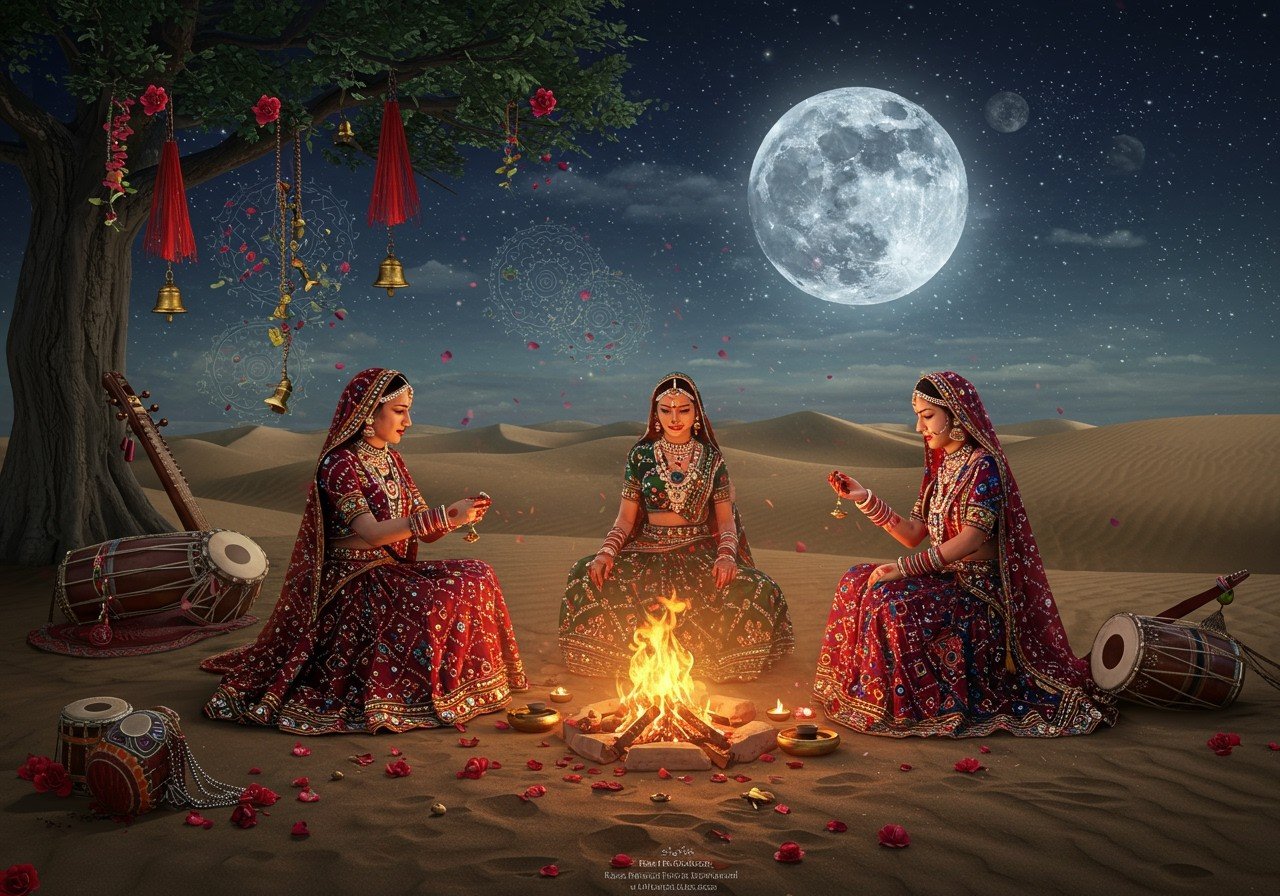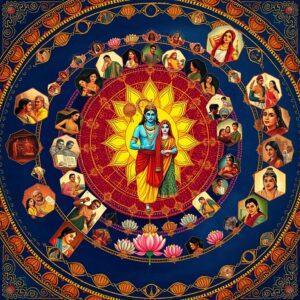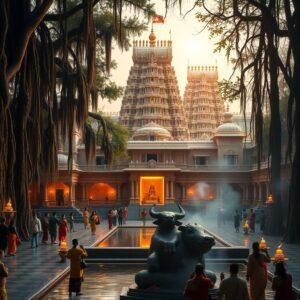
Rajasthan, the largest state in India, is renowned for its rich cultural heritage. Beyond its vibrant cities and majestic forts, Rajasthan nurtures a diverse tapestry of tribal communities. These communities, including the Bhils, Meenas, Garasias, Sahariyas, Damaria, Dhanka, Patelia, Naikda, and Nayaka, hold deep spiritual beliefs and unique traditions, adding another layer to the state’s cultural richness. This article delves into the spiritual world of Rajasthan’s tribal cultures, exploring their beliefs, the influence of Hinduism, and the significance of sacred groves and rituals in their lives.
Rajasthani Tribal Beliefs
Rajasthan’s tribal communities maintain a profound connection with nature, which forms the basis of their spiritual beliefs. They revere natural elements like trees, rivers, and mountains, considering them sacred abodes of deities and spirits. Ancestor worship also holds a prominent place, with rituals and offerings dedicated to honoring departed family members. Their spiritual leaders, often shamans or healers, are believed to possess the ability to communicate with the spirit world, offering guidance and healing to their communities.
- Shamans and Healers: These revered figures act as intermediaries between the physical and spiritual realms, guiding their communities and performing healing rituals.
- Festivals and Celebrations: Tribal life is punctuated by vibrant festivals and seasonal celebrations, marked by elaborate rituals, dances, and communal gatherings, reinforcing social bonds and passing down traditions through generations.
- Purity and Pollution: The concepts of purity and pollution play a crucial role in daily life, influencing social interactions, rituals, and dietary practices.
- Gods and Goddesses: Tribal communities worship a diverse pantheon of gods and goddesses, often interwoven with Hindu deities, reflecting a syncretic religious landscape.
- Oral Traditions: Spiritual knowledge, myths, and historical narratives are preserved and transmitted through oral traditions and folklore, ensuring the continuity of cultural heritage.
Hindu Influence on Tribal Cultures
Over time, Hinduism has significantly influenced Rajasthan’s tribal cultures, resulting in a unique fusion of tribal and Hindu practices. This interaction has led to the incorporation of tribal deities into the Hindu pantheon and the adoption of Hindu festivals like Diwali and Holi, albeit with distinct tribal variations. Despite these influences, many tribes retain distinct rituals and practices that are uniquely their own, demonstrating a resilient cultural identity.
- Shared Festivals: Hindu festivals like Diwali and Holi are celebrated with unique tribal interpretations, blending mainstream traditions with indigenous customs.
- Social Hierarchy: While less rigid than in mainstream society, the caste system influences social hierarchies and interactions within tribal communities.
- Pilgrimages: Tribal communities often undertake pilgrimages to Hindu temples, demonstrating a shared religious landscape.
- Myths and Epics: Hindu myths and epics are retold in tribal languages, infused with local narratives and interpretations.
- Architectural Influences: The architecture of tribal shrines sometimes reflects Hindu architectural styles, indicating cultural exchange.
- Sanskrit Mantras: The use of Sanskrit prayers and mantras in some tribal rituals suggests the assimilation of Hindu religious elements.
Sacred Groves and Rituals
Known as ‘Orans,’ sacred groves are patches of forest revered by tribal communities as the dwelling places of deities and spirits. These groves are protected by strict taboos and traditional rules, contributing to their ecological preservation. They serve as sites for important life-cycle rituals, festivals, and communal gatherings, reinforcing social bonds and spiritual connection to the land.
- Offerings and Sacrifices: Offerings of food, flowers, and sometimes animal sacrifices are made to appease deities and seek their blessings.
- Grove Deities: Festivals dedicated to grove deities involve communal feasting, music, and dance, strengthening community ties and expressing reverence for the sacred space.
- The Bhomia: The ‘Bhomia,’ or local guardian deity, plays a central role, believed to protect the community and ensure prosperity.
- Life-Cycle Rituals: Sacred groves serve as the backdrop for important life-cycle rituals, such as births, marriages, and funerals, connecting these events to the spiritual power of the land.
- Refuge and Healing: These groves offer places of refuge and healing, where individuals seek solace and spiritual guidance during times of hardship.
- Conservation Efforts: Growing awareness of the ecological importance of sacred groves has led to increased conservation efforts, safeguarding these vital ecosystems.
Poojn.in: Supporting Tribal Traditions
Poojn.in, India’s leading online store for cultural goods and services, recognizes the profound significance of Rajasthan’s tribal heritage. We offer a curated selection of products that resonate with the spiritual practices of these communities. Explore our collection of pure brass and copper items, sacred threads, incense, puja thalis, and other ritual essentials. Poojn.in is committed to providing authentic and high-quality products that honor the rich traditions of Rajasthan’s tribal cultures. Consider these specific products that align with tribal customs:
- Original Black Chamar: Used in ceremonies and rituals.
- Original White Chamar: Symbolic of purity and used in various rituals.
- Bamboo Kulo: Traditional bamboo baskets used for offerings and rituals.
Preserving a Rich Heritage
Rajasthan’s tribal cultures represent a vibrant tapestry of spiritual beliefs and traditions, deeply intertwined with the natural world. Their unique blend of indigenous practices and Hindu influences creates a rich cultural mosaic that deserves recognition and preservation. By understanding and respecting these traditions, we can contribute to their continuity, ensuring that future generations can appreciate the profound spiritual heritage of Rajasthan’s tribal communities.


